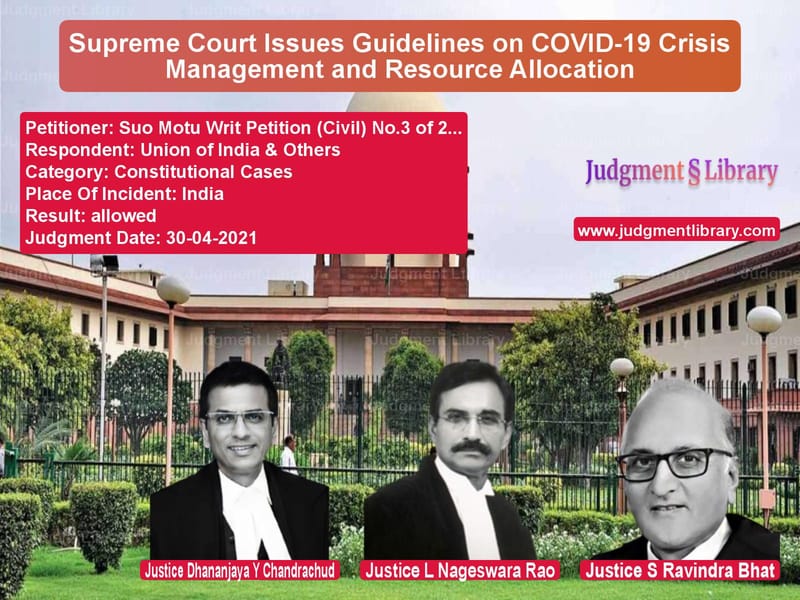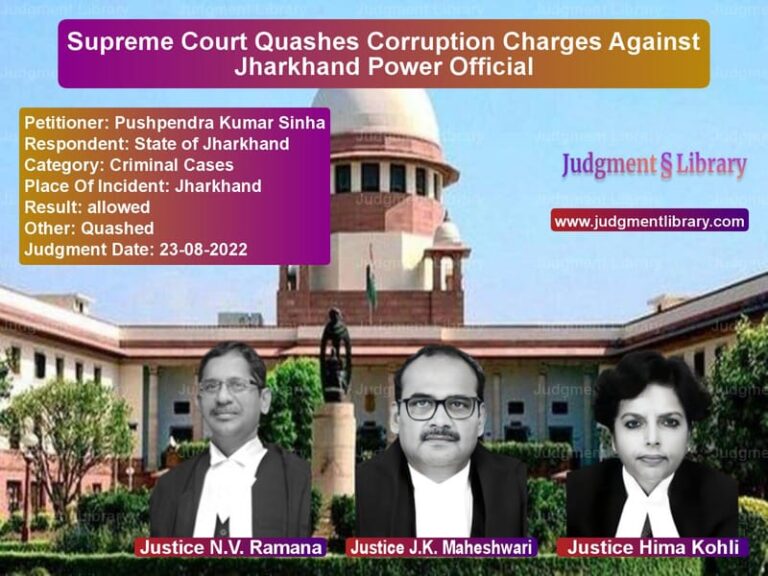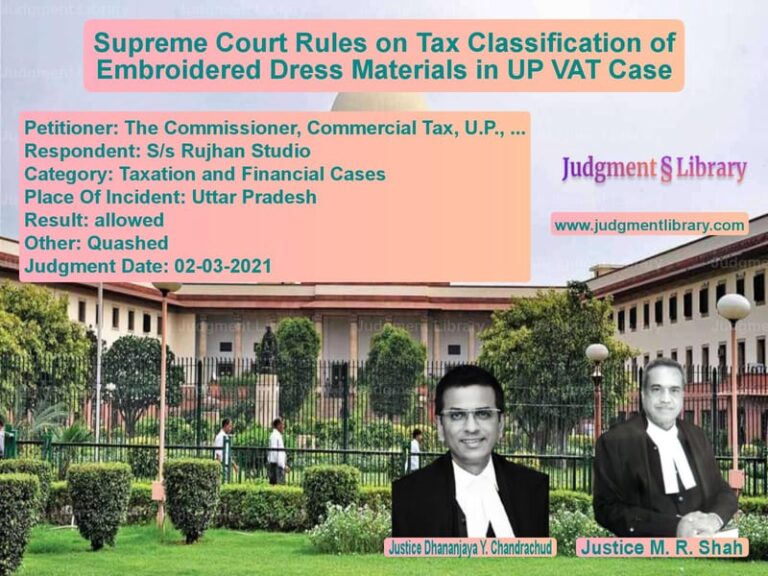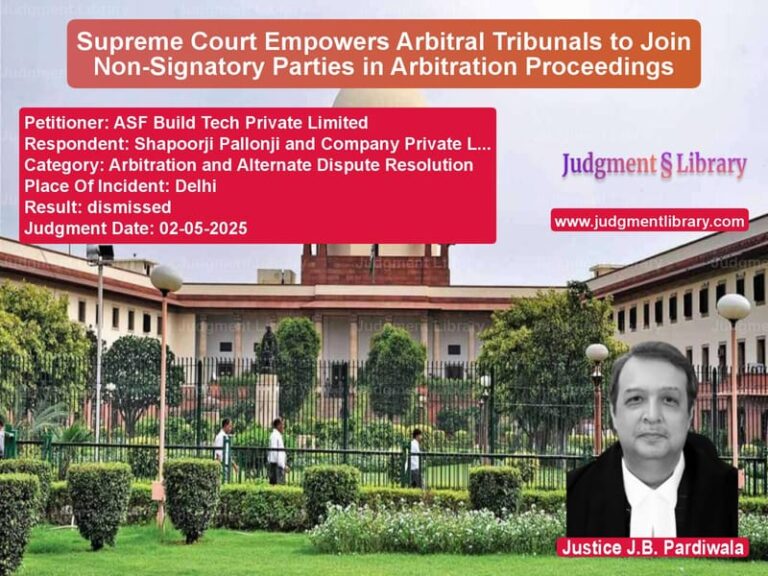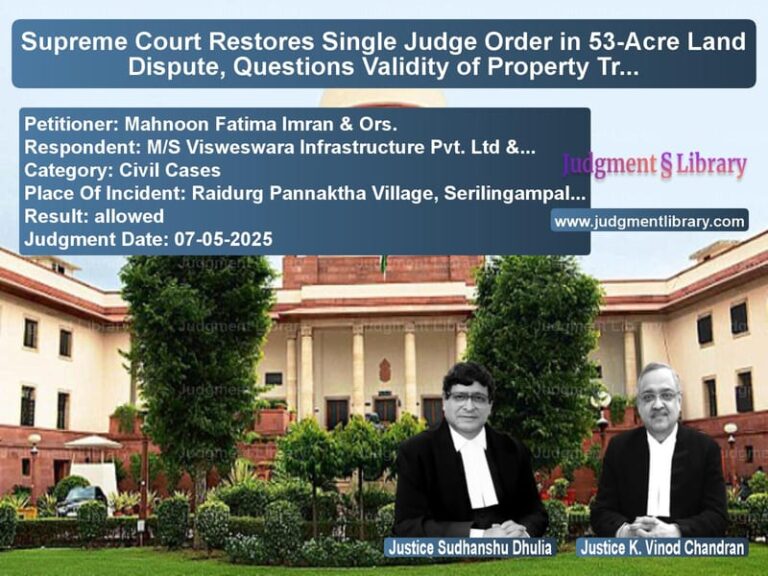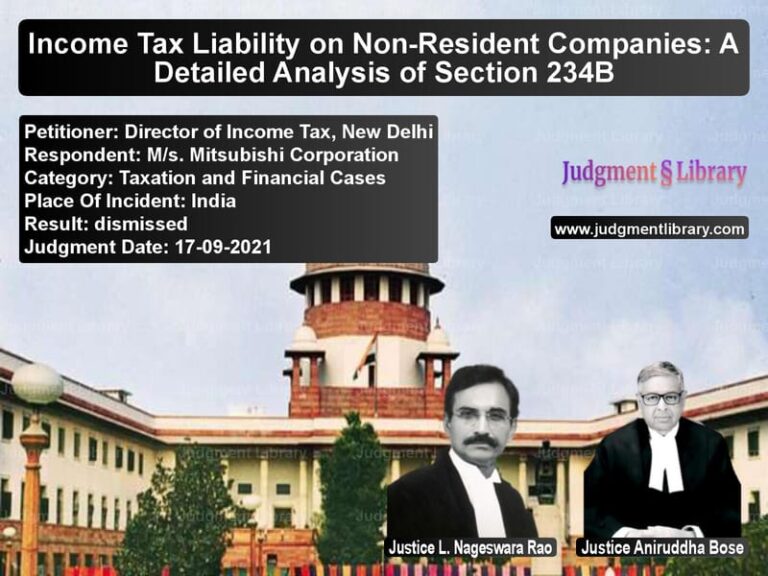Supreme Court Issues Guidelines on COVID-19 Crisis Management and Resource Allocation
The Supreme Court of India, in the case of In Re: Distribution of Essential Supplies and Services During Pandemic (Suo Motu Writ Petition (Civil) No.3 of 2021), laid down critical guidelines on the management of the COVID-19 crisis, focusing on oxygen supply, vaccine distribution, hospital admissions, and measures to curb black marketing of essential medicines. This judgment serves as a significant directive on India’s response to the pandemic and the protection of fundamental rights during a public health emergency.
Background of the Case
The COVID-19 pandemic created an unprecedented crisis in India, leading to shortages of medical supplies, hospital beds, oxygen, and vaccines. On April 22, 2021, the Supreme Court took suo motu cognizance of the situation, recognizing the urgent need for judicial intervention to ensure a coordinated and effective response.
The Court issued notices to the Union of India (UOI), State Governments, and Union Territories to explain why uniform orders should not be passed regarding:
- Supply of oxygen
- Supply of essential drugs
- Method and manner of vaccination
- Declaration of lockdowns
Key Issues Raised
- How should oxygen allocation be managed to prevent shortages in critically affected states?
- What are the national policies for equitable vaccine distribution and pricing?
- How should essential medicines be allocated and protected from black marketing?
- What steps should be taken to augment the healthcare workforce?
Arguments by the Central Government
- “We have taken adequate measures to ensure the supply of oxygen and vaccines, but logistical challenges have caused delays.”
- “States have the responsibility to arrange transport for their allocated oxygen supply, and some states have failed to do so efficiently.”
- “Vaccine pricing has been set by manufacturers, and states are allowed to procure vaccines to meet their needs.”
Arguments by State Governments
- “The Centre’s allocation of oxygen does not match the actual demand on the ground, leading to severe shortages in major cities.”
- “Vaccine procurement should be centralized, as leaving states to negotiate individually creates disparities.”
- “Lack of coordination between the Centre and states has led to confusion and mismanagement in hospitals.”
Supreme Court’s Observations and Guidelines
1. Oxygen Supply Management
- “The Centre must create a buffer stock of oxygen to prevent supply chain disruptions.”
- “A virtual central control room should monitor oxygen supply and allocate resources based on real-time demand.”
- “States must ensure transportation and distribution are handled efficiently.”
2. National Policy on Hospital Admissions
- “No hospital can deny admission due to lack of identity proof or local residency.”
- “A national policy must be framed to standardize admission criteria across all hospitals.”
- “Patients in critical need should be prioritized for hospitalization.”
3. Vaccine Procurement and Pricing
- “The Centre must reconsider its vaccine policy to ensure uniform pricing for all states.”
- “The Centre should negotiate prices with manufacturers and distribute vaccines equitably.”
- “There should be no disparity in vaccine access based on financial capability.”
4. Black Marketing and Hoarding of Essential Drugs
- “Strict action must be taken against those involved in hoarding and black marketing of medicines and oxygen cylinders.”
- “A special task force should be created to monitor and prevent such activities.”
- “Real-time tracking of medicine distribution must be implemented.”
5. Protection of Healthcare Workers
- “Healthcare professionals must be provided adequate protective equipment and mental health support.”
- “Their salaries and incentives must not be delayed or deducted unfairly.”
- “The Centre and states must ensure the safety of frontline workers.”
Supreme Court’s Judgment
The Supreme Court directed the following measures:
- The Centre must rectify the oxygen deficit in Delhi and other critically affected states within two days.
- A national buffer stock of oxygen must be created and distributed equitably.
- All Chief Secretaries and Police Commissioners must ensure that no social media posts requesting medical help are censored or criminalized.
- The Centre must develop a national policy on hospital admissions within two weeks.
- The Centre must review its vaccine pricing policy to prevent disparity among states.
- States must submit reports on steps taken to curb black marketing of essential medical supplies.
Key Takeaways from the Judgment
- Centralized planning is necessary: The Court emphasized that oxygen and vaccines should be distributed centrally to ensure fairness.
- States must cooperate: While the Centre has a primary role, states must ensure efficient implementation.
- Healthcare workers must be supported: The Court acknowledged the tireless efforts of medical professionals and urged better protections.
- Public information must not be censored: The Court ruled against any attempts to suppress calls for medical assistance on social media.
Conclusion
The Supreme Court’s judgment in In Re: Distribution of Essential Supplies and Services During Pandemic is a landmark ruling aimed at ensuring a fair and efficient response to the COVID-19 crisis. The guidelines issued will help streamline oxygen distribution, vaccine procurement, hospital admissions, and protection against black marketing. By directing both the Centre and states to take coordinated action, the Court has reinforced the importance of fundamental rights, including the right to life and access to healthcare.
Petitioner Name: Suo Motu Writ Petition (Civil) No.3 of 2021.Respondent Name: Union of India & Others.Judgment By: Justice Dhananjaya Y Chandrachud, Justice L Nageswara Rao, Justice S Ravindra Bhat.Place Of Incident: India.Judgment Date: 30-04-2021.
Don’t miss out on the full details! Download the complete judgment in PDF format below and gain valuable insights instantly!
Download Judgment: suo-motu-writ-petiti-vs-union-of-india-&-oth-supreme-court-of-india-judgment-dated-30-04-2021.pdf
Directly Download Judgment: Directly download this Judgment
See all petitions in Fundamental Rights
See all petitions in Public Interest Litigation
See all petitions in Judgment by Dhananjaya Y Chandrachud
See all petitions in Judgment by L. Nageswara Rao
See all petitions in Judgment by S Ravindra Bhat
See all petitions in allowed
See all petitions in supreme court of India judgments April 2021
See all petitions in 2021 judgments
See all posts in Constitutional Cases Category
See all allowed petitions in Constitutional Cases Category
See all Dismissed petitions in Constitutional Cases Category
See all partially allowed petitions in Constitutional Cases Category

